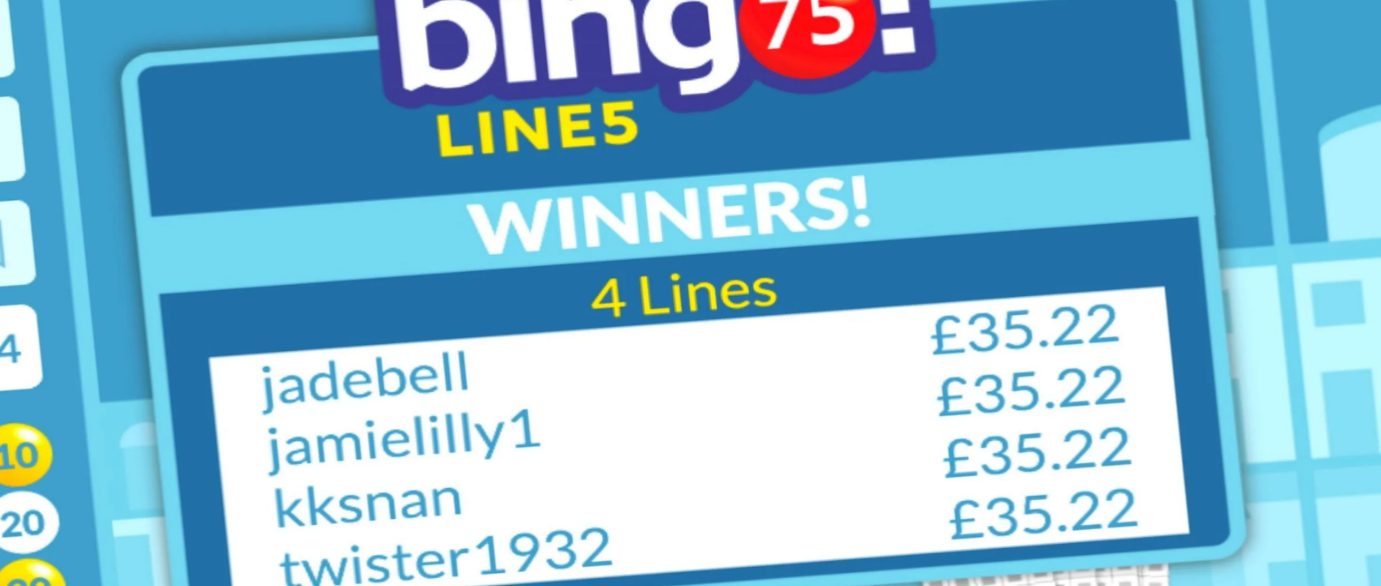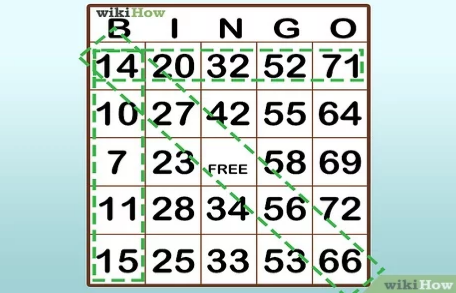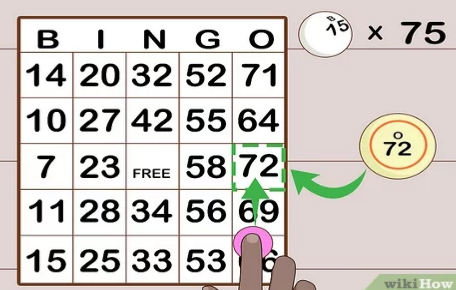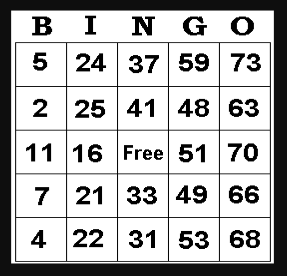Yes, there can indeed be two or more winners in a game of Bingo. This situation occurs when multiple players complete the required winning pattern on their bingo cards simultaneously. If such a case arises, the game host will check each claiming card to validate the win.
Understanding Winning in Bingo
Bingo, a game of chance, captivates players around the globe. Let’s delve deeper into the intricacies of winning this fascinating game, the way winners are determined, and some common misconceptions.

What Constitutes a Win?
In a traditional game of Bingo, winning usually means being the first player to mark off a specific pattern on their bingo card. The most common winning pattern is a straight line consisting of five marked squares in a vertical, horizontal, or diagonal row. However, different variations of Bingo introduce diverse winning patterns, such as the “four corners” (marking off the four corner numbers on the card), the “blackout” (marking off all numbers), and many others.
The moment a player achieves the winning pattern, they must announce it to the rest of the players by shouting “Bingo!” This effectively pauses the game, allowing the game organizer to check and confirm the claimed win. If the claim is valid, the game ends, and the player is declared the winner. You can find more information about this on Wikipedia.
How Are Winners Determined?
Determining the winner in a Bingo game is straightforward and transparent. Each player starts with a bingo card, typically containing a 5×5 grid of numbers. A caller randomly draws numbers and announces them to the players. Players mark off the corresponding number on their card if it exists. The first player to complete a pre-determined pattern and shout “Bingo!” wins.
The organizer then checks the player’s card to ensure the announced pattern is complete. The checking process involves cross-referencing the player’s card against the numbers already called out during the game. Once the organizer confirms the winning pattern, the game concludes, and the player officially wins.
Common Misconceptions about Winning in Bingo
Despite Bingo being a straightforward game, several misconceptions persist, particularly about winning. A common myth is that more experienced players have better odds of winning. In reality, Bingo is a game of chance, and every player—new or experienced—has an equal opportunity of winning. The numbers are drawn randomly, and there’s no way to predict the outcome.
Scenario of Multiple Winners
Bingo, a game of serendipity and anticipation, often leaves players wondering about the possibility of having multiple winners. This section delves into the circumstances of simultaneous wins, the resolution when multiple winners emerge, and some illustrative cases.
Can Two Players Win Simultaneously?
Yes, two players can win simultaneously in Bingo. This occurs when two or more players complete the winning pattern on their bingo cards with the same number call. Given that players usually play in large groups and everyone receives randomly generated cards, the chance of two players winning at the same moment exists, although it may not be common.
Simultaneous wins most often occur in large-scale games or games where players can play with multiple cards. For a detailed discussion of this situation, please see the Bingo (American version) Wikipedia page.
What Happens When There Are Multiple Winners?
When multiple players shout “Bingo!” simultaneously, the game host will check each claiming card to verify the win. If two or more players have a valid winning pattern, they are declared co-winners. The question of how to split the prize arises in such scenarios.
Typically, when there are multiple winners, the cash prize splits equally among them. For non-cash prizes, the event organizers usually have guidelines in place to address such situations, which may include distributing different prizes of equivalent value to each winner or deciding the winner through a tie-breaker round.
Precedents and Case Studies
Real-life examples of multiple winners in Bingo are not uncommon. In large-scale games or charity Bingo events where hundreds or even thousands of players participate, simultaneous wins happen occasionally.
For instance, in a 2010 charity Bingo event in the UK, a record number of players resulted in an unexpected scenario where ten people shouted “Bingo!” at the same time. After verifying all the cards, the event organizers indeed found that all ten players had won simultaneously. As the prize was a cash pot, it was equally divided among all the winners.
Implications of Multiple Winners in Bingo
While the occurrence of multiple winners in Bingo may seem surprising, it’s a scenario that can significantly impact the dynamics of the game. Let’s explore how simultaneous winners affect prize distribution, influence players’ strategies, and alter the fun and excitement of the game.
Impact on Prize Distribution
The occurrence of multiple winners in a Bingo game impacts the prize distribution directly. Generally, when more than one player wins, the cash prize gets divided equally among the winners. So, for instance, if the total prize is $500 and two players win, each player would receive $250. However, specifics can vary depending on the game’s rules or the organizer’s decisions.
If the prize is non-cash, such as a vacation package or a gadget, the organizers typically have rules in place to handle such situations. They may provide each winner with a similar prize of equivalent value or decide the final winner through an additional tie-breaker round.

Influence on Player Strategy
The prospect of multiple winners can influence player strategy to some extent, although Bingo largely remains a game of chance. Players might opt to play with more cards to increase their chances of winning, though this can also lead to more difficulty in tracking numbers.
Knowing that the prize can be split, some players may choose to participate in games with fewer players to minimize the likelihood of sharing the prize. However, the possibility of multiple winners doesn’t change the fundamental principle of the game – that it’s the luck of the draw.
How Does It Affect the Fun and Excitement of the Game?
The possibility of having multiple winners can add an extra layer of excitement to Bingo. While the suspense of waiting for a number call is a significant thrill, the sudden surprise of multiple winners can add a twist to the game’s narrative.
On the flip side, some players might feel the excitement dampens when the prize gets split among multiple winners, especially if the prize is significantly reduced. Nonetheless, many players enjoy Bingo for the social and fun elements, and the prospect of multiple winners often contributes to the overall game enjoyment.
Mitigation Strategies for Multiple Winners
While the prospect of multiple winners in Bingo adds a unique layer of excitement to the game, some players or organizers may prefer to minimize this possibility. This section discusses the feasibility of avoiding multiple winners and explores techniques that can potentially reduce the likelihood of this occurrence.

Is it Possible to Avoid Multiple Winners?
In theory, completely avoiding multiple winners in Bingo is nearly impossible. Since Bingo is fundamentally a game of chance, the possibility of two or more players completing a winning pattern simultaneously always exists, especially in large games where many players participate.
However, there are certain practices game organizers can adopt to lower the chances of simultaneous wins. For instance, in smaller games with fewer players, the probability of having multiple winners reduces simply due to the lower number of participants. You can learn more about this on the Bingo (American version) Wikipedia page.
Techniques to Reduce the Likelihood of Multiple Winners
While completely preventing multiple winners in Bingo isn’t feasible, there are some strategies that can reduce the likelihood:
- Limiting the Number of Cards per Player: By limiting the number of cards each player can use, the game organizer can reduce the odds of multiple winners. This is because the fewer cards in play, the less likely multiple cards will hit the winning pattern simultaneously.
- Increasing Game Complexity: Introducing more complex winning patterns can also decrease the chance of simultaneous wins. Patterns that require more numbers to be marked off mean it takes longer for anyone to win, reducing the chances of multiple players shouting “Bingo!” at the same time.
- Reducing Player Count: Holding games with fewer players also decreases the odds of multiple winners. However, this might not be as much fun and can reduce the total prize pool if players contribute to it.


